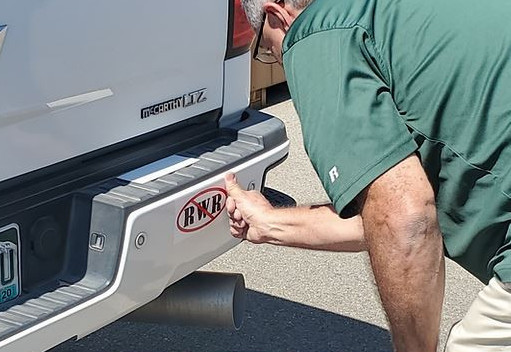Douglas County commissioners meet again about controversial San Luis Valley water project

DOUGLAS COUNTY— A controversial plan to pipe water from the San Luis Valley to Douglas County may be seeing new life after the county’s commissioners recently met behind closed doors to discuss the proposal again.
Four months after announcing they wouldn’t use federal COVID-19 funds on the plan from Renewable Water Resources, or RWR, the commissioners heard a legal update on the project from the county’s outside counsel
In May, Laydon made the decisive vote not to use a portion of the county’s $68 million in American Rescue Plan Act money on the proposal. However, he said he was still interested in continuing to look at the project.
Since then, the county has continued to pay Leonhardt to talk with RWR.
The project from Renewable Water Resources, or RWR, proposes pulling 22,000 acre-feet of water per year from the San Luis Valley, permanently drying up wells in the area, and transporting the water to Douglas County.
The private water developer asked for an initial investment of $10 million with an additional cost of $19,500 per acre-foot of water.
Commissioner George Teal, a longtime supporter of the plan, said during the Sept. 13 meeting that Leonhardt’s advice reflects the current legal and political setting and that things could change in the decades it would take for the project to come to fruition.
“We are talking (about), quite frankly, a generational work project in order to bring water to Douglas County,” he said. “I remain an advocate for proceeding forward with RWR.”
Residents and water districts from the valley, along with politicians and leaders throughout the state, have been strongly against the project, saying there is no extra water to remove from the valley and that the project would irreparably damage the region’s agricultural community.
Opponents of the plan have come from across the political spectrum, including Rep. Lauren Boebert, Gov. Jared Polis, Sen. Cleave Simpson, R-Alamosa and both U.S. senators.
In a series of seven hours-long meetings, commissioners assessed the proposal by hearing from various stakeholders such as San Luis Valley farmers, water attorneys, environmental groups, water districts and others.
Throughout the meetings, opponents of RWR have said the project would exacerbate drought in the valley and would have a profoundly negative impact on their economy and water supply.
Without providing details, RWR has said their plan won’t hurt the surrounding area and have offered a $50 million community fund as part of their plan.
In a Feb. 28 meeting, executive director of the South Metro Water Supply Authority Lisa Darling told the commissioners that none of the major water districts in Douglas County are interested in the water from RWR, as they have other costly plans in place.
Teal has spoken in favor of the proposal, saying based on the county’s need for water, they should consider every possible option. RWR has said their proposal could provide water for about 70,000 Douglas County households.
Teal has received about $5,000 in campaign donations from RWR leader Sean Tonner, according to the Secretary of State's campaign finance database.
Commissioner Lora Thomas has remained against the project since it was first proposed, siding with the residents of the valley who say it would significantly damage their way of life.
Laydon said in May he wouldn’t support using ARPA dollars on the project after hearing from the county’s outside legal counsel Leonhardt that it isn’t eligible for the funding.
“Right now there are simply too significant and enormous of hurdles for us to move forward on this project,” he said at the time. “That’s not to say that we can’t explore this in the future, I think we certainly can, but RWR will have to do significant additional homework on all of these fronts to accomplish that.”
An analysis of the proposal, completed by Leonhardt, points out that RWR has not formed a legally-required augmentation plan, which would show how they would avoid injury to other water rights.
The memo outlined several other “enormous hurdles” in the project, including that there is “no unappropriated water” available in the valley, the plan is inconsistent with the state’s water plan and possible struggles with permits.
"The permanent retirement of thousands of acres of irrigated lands makes it very difficult to create a 'win-win' with the San Luis Valley," according to the memo.
Leonhardt and his team were initially hired by the county in January with a maximum contract amount of $25,000.
Leonhardt’s hourly rate under that contract was $395, three other colleagues of his were given rates of $375, $275 and $175.
In March, the county agreed to increase the maximum total payment to $40,000. In April it was increased to $55,000 and in June it was increased to $75,000.
Laydon said Sept.13 the county doesn’t intend to ask Leonhardt to do any additional legal work on the proposal at the moment.



